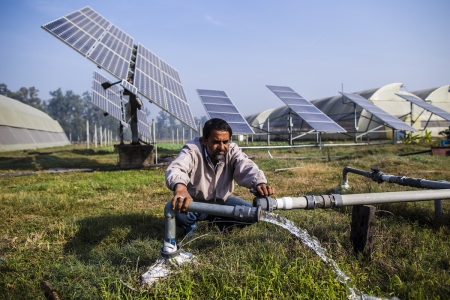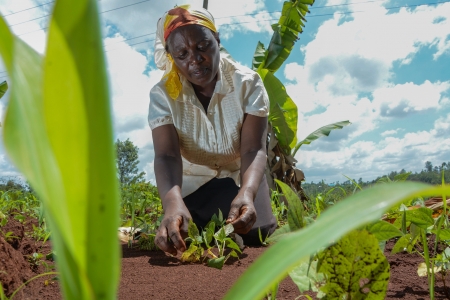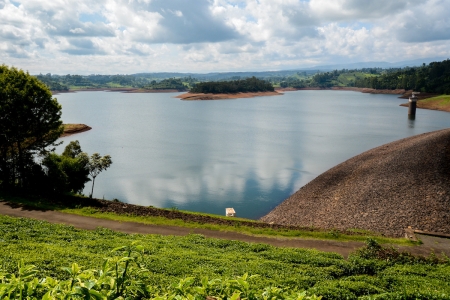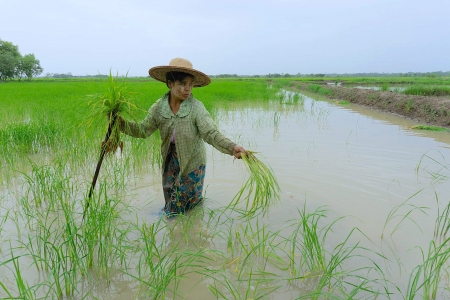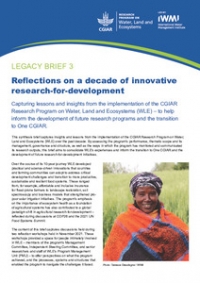The EAT-Lancet Commission's groundbreaking 2019 report has been profoundly influencing international development efforts and national dietary guidelines. With significant contributions from CGIAR scientists, the report shifted the global dialog and has led to the launch of other solution finding initiatives.
Agriculture is both the primary cause and victim of environmental degradation, but also essential to eliminate global hunger and nutrition insecurity. Is it possible to define a universal diet that solves this conundrum, providing healthy food for the world's population, while respecting the planet's natural boundaries? That's what 36 leading scientists came together to find out under the EAT-Lancet Commission.
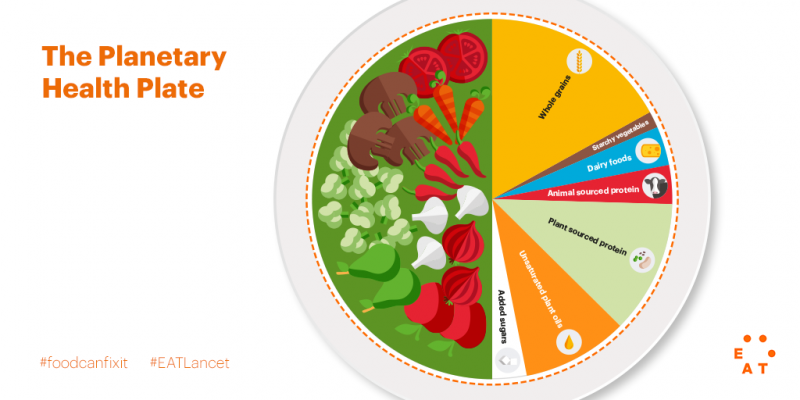
They defined a universally healthy and sustainable diet, notably recommending significantly decreasing our consumption of meat and dairy, and instead shifting toward a plant-based diet dominated by grains, fruits, vegetables, nuts and legumes. With four CGIAR senior scientists co-authoring this framework paper, CGIAR led the way with the most contributors. Its research significantly shaped the final messages.

The EAT-Lancet recommendations are having far-reaching influence and are being used as a foundation by numerous municipal, national and international bodies. They have served as a reference point for the IPBES Nexus Assessment and set the stage for upcoming work, such as the CGIAR Research Program on Water, Land and Ecosystems (WLE)'s Commission on the Sustainable Intensification of Agriculture, the Food Economics Commission, which will include two CGIAR scientists, and the Blue Food Assessment, a scientific partner of WorldFish..
The EAT-Lancet advice is increasingly being adopted in national dietary guideline processes, including in Brazil, Indonesia, Canada, Sweden and several European Union countries.
Finding it possible to feed everyone a healthy diet by 2050, while staying within planetary boundaries, the EAT-Lancet authors highlighted five major levers of change, including sustainably intensifying food production, achievable, the authors argue, by transitioning agriculture to zero emission, stopping land expansion, restricting nitrogen and phosphorus pollution, and more.
However, these global targets should be spatially differentiated, which requires national and subnational planning processes and research investments. As an initial step, the Food and Land Use Coalition, which includes WLE and the Alliance of Bioversity and CIAT, is working with a global team of 20 countries plus the European Union to develop globally aligned national-scale roadmaps that help countries apply the EAT-Lancet recommendations for agriculture.

/index.jpg?itok=EzuBHOXY&c=feafd7f5ab7d60c363652d23929d0aee)


